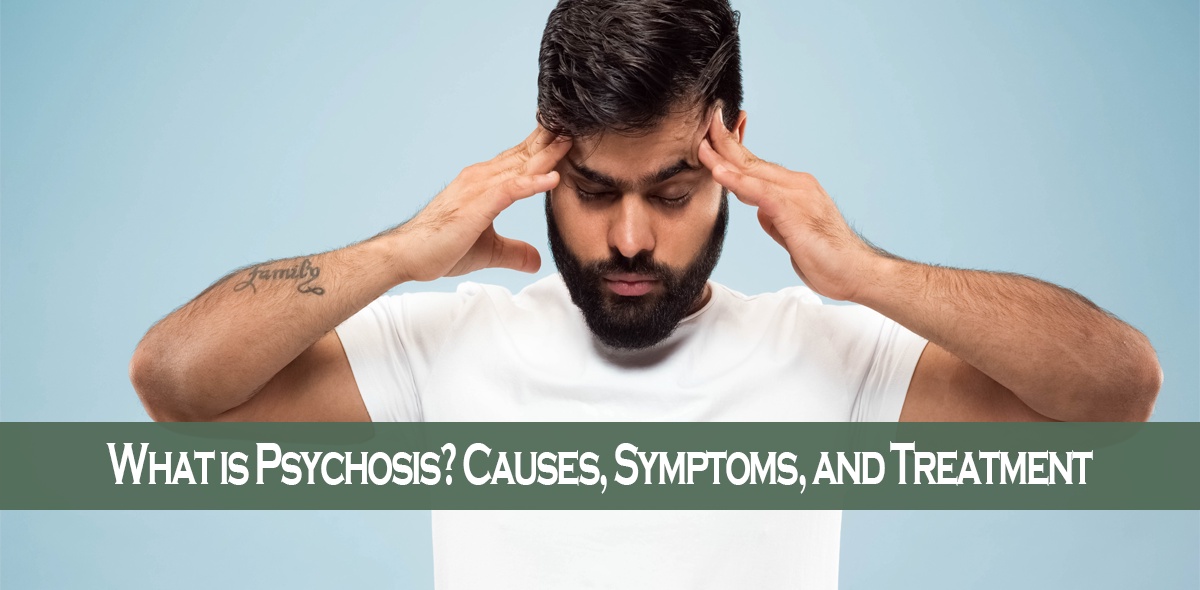Psychosis is a complex and often misunderstood mental health condition that affects millions of people worldwide. It is a symptom of various mental disorders rather than a standalone diagnosis. Psychosis can lead to deep disruptions in a person's thoughts, emotions, and behaviors. It can also have a significant impact on a person and on their loved ones.
What Is Psychosis?
Psychosis is a set of symptoms in which a person experiences a break from reality. This loss of touch with reality can lead to distorted thoughts, skewed perceptions, and emotional disturbance. It can present in a variety of ways, including hallucinations, delusions, disorganized thinking, and impaired insight.
A hallucination is when a person sees or perceives things that are not actually present in their environment. Examples include hearing voices, seeing things, or feeling sensations that others cannot. Delusions are false beliefs that persist despite evidence to the contrary. These beliefs can be bizarre, irrational, or paranoid in nature.
Psychosis is Not a Single Disorder

Psychosis is a symptom of various underlying mental health conditions. These can include those mentioned below.
1. Schizophrenia:
This is perhaps the most well-known disorder associated with psychosis. People with this condition often experience a combination of hallucinations, delusions, disorganized thinking, and cognitive impairments.
2. Schizoaffective disorder:
This has elements of both schizophrenia and mood disorders like bipolar disorder or major depressive disorder. It can result in symptoms of psychosis along with mood disturbances.
3. Bipolar disorder:
In some cases, people with bipolar disorder may experience psychotic symptoms during manic or depressive episodes. These symptoms can include grandiose delusions or hallucinations.
4. Major depressive disorder with psychotic features:
Severe depression can sometimes lead to psychotic symptoms, such as delusions of guilt or worthlessness.
5. Substance-induced psychosis:
Certain substances, such as drugs or alcohol, can induce temporary psychotic symptoms when abused or consumed in excessive quantities.
6. Brief psychotic disorder:
This is a short-term condition characterized by sudden onset psychosis, often in response to a significant stressor or traumatic event. Symptoms typically resolve within a month.
7. Delusional disorder:
People with this disorder primarily experience delusions without other major symptoms of psychosis.
The Causes of Psychosis
Research suggests that psychosis may be caused by a combination of genetic, environmental, and neurobiological factors.
1. Genetic factors:
A family history of psychotic disorders can increase the risk of developing psychosis. Specific genetic variations may also play a role in susceptibility.
2. Neurobiological factors:
Imbalances in neurotransmitters, particularly dopamine, may be linked to the development of psychosis. Neuroimaging studies have revealed structural and functional abnormalities in the brains of people with psychotic disorders.
3. Environmental factors:
Stressful life events, trauma, and early childhood adversity can contribute to the onset of psychosis. Substance abuse can trigger psychotic symptoms in susceptible individuals.
4. Neurodevelopmental factors:
Arrested brain development during prenatal or early childhood stages may increase the vulnerability to psychosis later in life.
The Symptoms of Psychosis
Symptoms can vary in severity from person to person. Common symptoms of psychosis are detailed below.
- Hallucinating, or perceiving, feeling, hearing, tasting, or seeing things that are not actually there. Auditory hallucinations (hearing voices) are the most common type.
- Delusions are false beliefs that are resistant to reasoning or evidence. They can take various forms, such as paranoid delusions (believing others are plotting against you) or grandiose delusions (believing you have special powers or importance).
- Illogical thought patterns. A person may also struggle with fragmented or incoherent speech and difficulty concentrating or following conversations.
- Someone with psychosis may not recognize that their thoughts or beliefs are impaired, which adversely affects their ability to recognize that they need help, and then seek help.
- Psychosis can also cause lack of motivation, social withdrawal, and reduced emotional expression.
- Often, people with psychosis experience cognitive impairment, like difficulties with memory, attention, and problem-solving.
Treatment for Psychosis

Psychosis can be managed, and early intervention can significantly improve outcomes. The approach to treatment typically involves a combination of strategies.
Medication
Antipsychotic medications is part of the treatment for psychosis. These drugs help to alleviate symptoms by modulating neurotransmitter imbalances in the brain. Patients must work closely with a healthcare provider to find the most suitable medication and dosage, as the effectiveness and side effects can vary.
Psychotherapy
Individual therapy, such as cognitive-behavioral therapy (CBT) or supportive therapy, can help those with psychosis manage their symptoms, improve insight, and develop coping strategies.
Family support
Family members that are involved in the treatment process can be help to provide a stable and supportive environment.
Social and vocational rehabilitation
Programs that focus on skill-building and community integration can help people coping with psychosis regain their independence and improve their quality of life.
Hospitalization
In severe cases or during acute episodes, hospitalization may be necessary to ensure safety and provide intensive treatment.
Substance abuse treatment
If substance abuse is a contributing factor to the psychosis, addressing this issue is necessary as part of the treatment plan. This plan may include treatment for both the substance use disorder and the psychotic symptoms.
Trust Mental Health has a team of BIPOC therapists that offer various modes of individual therapy in California. Contact us today for a free 15 minute consultation.
FAQs
What is therapy for teens and why might my teenager need it?
Therapy for teens is a form of mental health support designed to help adolescents navigate the challenges they face during their teenage years. Teens may need therapy for various reasons. These can include stress management, emotional issues, sexuality, mental health conditions, or coping with life changes.
How do I know if my teenager needs therapy?
Signs that your teenager is struggling and may benefit from therapy include: significant changes in behavior, mood, or academic performance; social withdrawal, self-harm, substance abuse, or expressing thoughts of self-harm or suicide. If you have concerns about your teen's well-being, consulting a mental health professional is a wise step.
Is therapy effective for teenagers?
Therapy can be highly effective for teenagers. Research shows that many adolescents experience significant improvements in their mental health and well-being with the right therapy and support. It is important to seek help early if needed and engage in the therapy process actively.


No comments yet